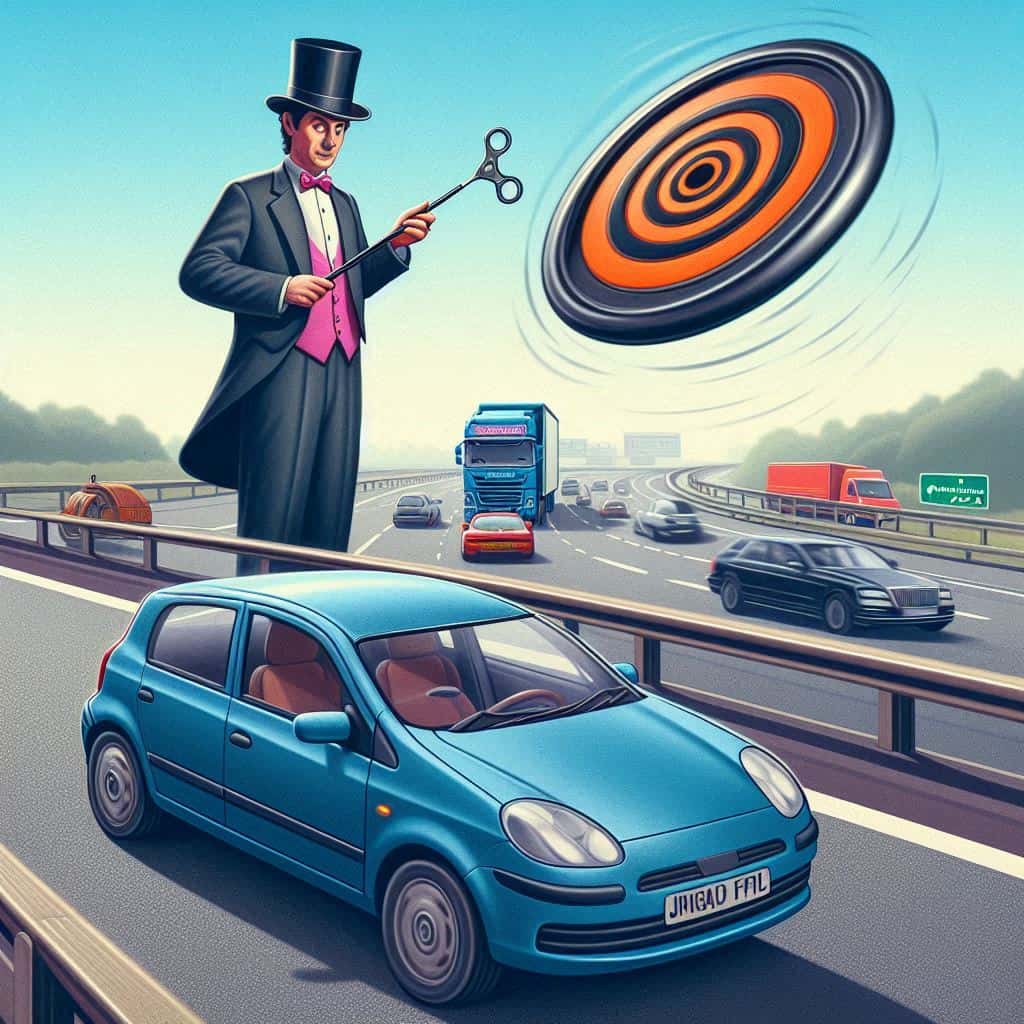Highway hypnosis sounds like a magician’s party trick, but it’s actually what happens when your brain decides it’s had enough of your daily commute and flips the switch to “autopilot.” You’re driving. You’re obeying the laws. You’re just…not really there.
It’s the psychological equivalent of answering emails while half-asleep — and yes, it’s more common than you think.
What Is Highway Hypnosis?
Highway hypnosis (aka “zombie driving,” if you’re into Halloween metaphors year-round) is when you drive a familiar route—like your daily commute—and later realise you remember absolutely none of it. Don’t panic. Your brain didn’t shut off. It just outsourced the task to your subconscious while your conscious mind took a coffee break.
1. You Have No Memory of the Trip
You get home, park the car, and suddenly wonder: “Did I stop at that light? Was that construction still there?” If your commute feels like a deleted scene from your day, that’s highway hypnosis in action.
2. Your Brain Took a Scenic Detour
You were driving, yes. But your thoughts were somewhere between planning dinner and mentally rewording an email to your boss. If your body stayed on the road while your brain wandered off to chase squirrels, you were on autopilot.
3. Familiar Routes Feel Invisible
Driving the same route over and over can trick your brain into going full cruise control. Familiarity may not breed contempt, but it definitely breeds zoning out. Repetition is comfy for your brain—maybe a little too comfy.
4. You Miss Signs, Exits, or Even Entire Towns
“Wait, was that my exit?” If you’ve ever realized this too late—while staring at cows in a field that’s definitely not your neighbourhood—you’ve been hypnotised by the highway. Congratulations.
5. You Feel Like a Passenger in Your Own Car
Ever feel like you’re watching yourself drive? Like you’re the supporting character in your own commute? That strange sensation of detachment is another classic red flag of highway hypnosis.
6. You’re Running on Empty (Literally or Mentally)
Fatigue turns your brain into mashed potatoes. If you’re tired, dehydrated, or just mentally fried from back-to-back Zoom calls, your brain will do you a “favour” by skipping the boring drive part. Not ideal.
7. You’re Slow to React
If your reaction time resembles dial-up internet, you’re not fully engaged. And when squirrels, potholes, or reality TV-grade traffic suddenly appear, that delay can get dangerous fast.
How to Avoid Highway Hypnosis (Without Quitting Your Job)
You can’t always avoid routine drives, but you can trick your brain back into paying attention:
- Take a new route — even if it’s slightly longer. New scenery, new neurons!
- Blast a podcast or music — just steer clear of lullabies or chill jazz.
- Chew gum or snack — keeps your senses engaged.
- Open a window — fresh air > stale autopilot brain.
- Rest up — this isn’t just advice. Sleep is your actually your best defense.
Is Highway Hypnosis Dangerous?
It can be. Most of the time, your subconscious does a decent job steering the ship. But if something unexpected happens—like a kid chasing a football into the street—you need your full mental crew on deck.
If highway hypnosis happens frequently or starts creeping into unfamiliar routes, it’s time to look at your sleep, stress, and hydration levels. Or, you know, take a holiday.
Final Thoughts: Stay Present, Stay Safe
Highway hypnosis is your brain’s lazy way of saying, “I’ve got this, go daydream.” That’s fine—sometimes. But your safety depends on showing up for the drive, not just physically but mentally.
Even if you can’t avoid routine roads, you can still outsmart your brain and keep things interesting (and safe).


We want to hear your what you have to say